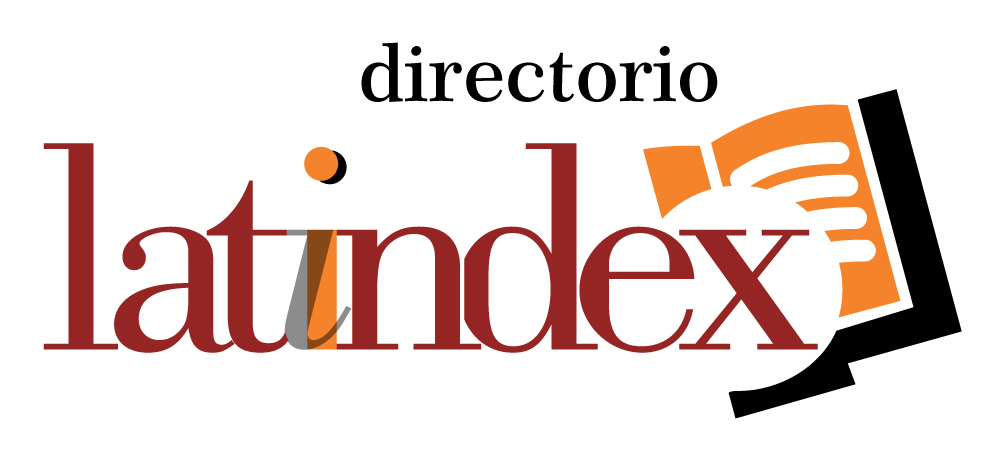Screen use and sleep duration in university students
DOI:
https://doi.org/10.32870/jbf.v3i5.37Keywords:
screen time, sleep duration, college studentsAbstract
Nighttime use of electronic screens has been associated with decreased total sleep time and circadian rhythm disturbances, as well as academic performance. The aim of this research was to determine screen use and sleep duration in university students. The research was descriptive, observational, and cross-sectional; the study population were undergraduate students from Centro Universitario del Sur, Universidad de Guadalajara, Mexico, obtaining a total of 220 participants. Questions were asked related to the duration of screen use, whether there was a television in the room or electronic screens were used before going to sleep, and the chrononutritional behavior profile questionnaire was applied. Mean hours of sleep were greater on weekends than on weekdays, and there was also a tendency to sleep and wake up later on weekends than on weekdays in both men and women. Around a third of the population had a social jetlag of more than two hours, with a higher proportion in men (38.55%) than in women (30.3%); mean time of use of electronic screens per day was 6.15 ± 3:00 h. It was identified that 56.74% of university students use some type of screen between 5 and 10 h and 40.47% did not have a television in their room. This information can be useful to generate public health and educational policies considering the role of sleep duration, screen use, and social jetlag in interventions that prevent obesity and promote public health.
Downloads
References
Albqoor, M. A., y Shaheen, A. M. (2021). Sleep quality, sleep latency, and sleep duration: A national comparative study of university students in Jordan. Sleep and Breathing, 25(2), 1147-1154. https://doi.org/10.1007/s11325-020-02188-w
Aoki, K., Yamamoto, R., Shinzawa, M., Kimura, Y., Adachi, H., Fujii, Y., Tomi, R., Nakanishi, K., Taneike, M., Nishida, M., Kudo, T., Yamauchi-Takihara, K., Isaka, Y., y Moriyama, T. (2020). Sleep debt and prevalence of proteinuria in subjects with short sleep duration on weekdays: A cross-sectional study. Clinical and Experimental Nephrology, 24(2), 143-150. https://doi.org/10.1007/s10157-019-01808-4
Arora, T., Chen, M. Z., Cooper, A. R., Andrews, R. C., y Taheri, S. (2016). The Impact of Sleep Debt on Excess Adiposity and Insulin Sensitivity in Patients with Early Type 2 Diabetes Mellitus. Journal of Clinical Sleep Medicine, 12(5), 673-680. https://doi.org/10.5664/jcsm.5792
Arshad, D., Joyia, U. M., Fatima, S., Khalid, N., Rishi, A. I., Rahim, N. U. A., Bukhari, S. F., Shairwani, G. K., y Salmaan, A. (2021). The adverse impact of excessive smartphone screen-time on sleep quality among young adults: A prospective cohort. Sleep Science, 14(4), 337-341. https://doi.org/10.5935/1984-0063.20200114
Benaich, S., Mehdad, S., Andaloussi, Z., Boutayeb, S., Alamy, M., Aguenaou, H., y Taghzouti, K. (2021). Weight status, dietary habits, physical activity, screen time and sleep duration among university students. Nutrition and Health, 27(1), 69-78. https://doi.org/10.1177/0260106020960863
Brunborg, G. S., Mentzoni, R. A., y Frøyland, L. R. (2014). Is video gaming, or video game addiction, associated with depression, academic achievement, heavy episodic drinking, or conduct problems? Journal of Behavioral Addictions, 3(1), 27-32. https://doi.org/10.1556/JBA.3.2014.002
Buysse, D. J., Reynolds, C. F., Monk, T. H., Berman, S. R., y Kupfer, D. J. (1989). The Pittsburgh sleep quality index: A new instrument for psychiatric practice and research. Psychiatry Research, 28(2), 193-213. https://doi.org/10.1016/0165-1781(89)90047-4
Caetano, G., Bozinovic, I., Dupont, C., Léger, D., Lévy, R., y Sermondade, N. (2021). Impact of sleep on female and male reproductive functions: A systematic review. Fertility and Sterility, 115(3), 715-731. https://doi.org/10.1016/j.fertnstert.2020.08.1429
Caliandro, R., Streng, A. A., van Kerkhof, L. W. M., van der Horst, G. T. J., y Chaves, I. (2021). Social Jetlag and Related Risks for Human Health: A Timely Review. Nutrients, 13(12), 4543. https://doi.org/10.3390/nu13124543
Chami, H. A., Ghandour, B., Isma’eel, H., Nasreddine, L., Nasrallah, M., y Tamim, H. (2020). Sleepless in Beirut: Sleep duration and associated subjective sleep insufficiency, daytime fatigue, and sleep debt in an urban environment. Sleep & Breathing, 24(1), 357-367. https://doi.org/10.1007/s11325-019-01833-3
da Silva, F. R., Junior, A. H. L., Brant, V. M., Lôbo, I. L. B., Lancha, L. O. P., Silva, A., y de Mello, M. T. (2020). The effects of COVID-19 quarantine on eating and sleeping behaviors. Nutrire, 45(2), 25. https://doi.org/10.1186/s41110-020-00128-y
Dashti, H. S., Scheer, F. A., Jacques, P. F., Lamon-Fava, S., y Ordovás, J. M. (2015). Short sleep duration and dietary intake: Epidemiologic evidence, mechanisms, and health implications. Advances in Nutrition, 6(6), 648-659. https://doi.org/10.3945/an.115.008623
Díaz-Morales, J. F., y Escribano, C. (2015). Social jetlag, academic achievement and cognitive performance: Understanding gender/sex differences. Chronobiology International, 32(6), 822-831. https://doi.org/10.3109/07420528.2015.1041599
Doan, N., Parker, A., Rosati, K., van Beers, E., y Ferro, M. A. (2022). Sleep duration and eating behaviours among adolescents: A scoping review. Health Promotion and Chronic Disease Prevention in Canada: Research, Policy and Practice, 42(9), 384-397. https://doi.org/10.24095/hpcdp.42.9.02
Fonken, L. K., Workman, J. L., Walton, J. C., Weil, Z. M., Morris, J. S., Haim, A., y Nelson, R. J. (2010). Light at night increases body mass by shifting the time of food intake. Proceedings of the National Academy of Sciences, 107(43), 18664-18669. https://doi.org/10.1073/pnas.1008734107
Fossum, I. N., Nordnes, L. T., Storemark, S. S., Bjorvatn, B., y Pallesen, S. (2014). The Association Between Use of Electronic Media in Bed Before Going to Sleep and Insomnia Symptoms, Daytime Sleepiness, Morningness, and Chronotype. Behavioral Sleep Medicine, 12(5), 343-357. https://doi.org/10.1080/15402002.2013.819468
Gradisar, M., Wolfson, A. R., Harvey, A. G., Hale, L., Rosenberg, R., y Czeisler, C. A. (2013). The sleep and technology use of Americans: Findings from the National Sleep Foundation’s 2011 Sleep in America poll. Journal of Clinical Sleep Medicine, 9(12), 1291-1299. https://doi.org/10.5664/jcsm.3272
Guerrero, M. D., Barnes, J. D., Chaput, J.-P., y Tremblay, M. S. (2019). Screen time and problem behaviors in children: Exploring the mediating role of sleep duration. The International Journal of Behavioral Nutrition and Physical Activity, 16(1), 105. https://doi.org/10.1186/s12966-019-0862-x
Guo, Y., Liao, M., Cai, W., Yu, X., Li, S., Ke, X., Tan, S., Luo, Z., Cui, Y., Wang, Q., Gao, X., Liu, J., Liu, Y., Zhu, S., y Zeng, F. (2021). Physical activity, screen exposure and sleep among students during the pandemic of COVID-19. Scientific Reports, 11, 8529. https://doi.org/10.1038/s41598-021-88071-4
Hale, L., Kirschen, G. W., LeBourgeois, M. K., Gradisar, M., Garrison, M. M., Montgomery-Downs, H., Kirschen, H., McHale, S. M., Chang, A.-M., y Buxton, O. M. (2018). Youth screen media habits and sleep: Sleep-friendly screen-behavior recommendations for clinicians, educators, and parents. Child and adolescent psychiatric clinics of North America, 27(2), 229-245. https://doi.org/10.1016/j.chc.2017.11.014
Hashemi, S., Ghazanfari, F., Ebrahimzadeh, F., Ghavi, S., y Badrizadeh, A. (2022). Investigate the relationship between cell-phone over-use scale with depression, anxiety and stress among university students. BMC Psychiatry, 22, 755. https://doi.org/10.1186/s12888-022-04419-8
Haug, S., Castro, R. P., Kwon, M., Filler, A., Kowatsch, T., y Schaub, M. P. (2015). Smartphone use and smartphone addiction among young people in Switzerland. Journal of Behavioral Addictions, 4(4), 299-307. https://doi.org/10.1556/2006.4.2015.037
Henderson, S. E. M., Brady, E. M., y Robertson, N. (2019). Associations between social jetlag and mental health in young people: A systematic review. Chronobiology International, 36(10), 1316-1333. https://doi.org/10.1080/07420528.2019.1636813
Hirshkowitz, M., Whiton, K., Albert, S. M., Alessi, C., Bruni, O., DonCarlos, L., Hazen, N., Herman, J., Katz, E. S., Kheirandish-Gozal, L., Neubauer, D. N., O’Donnell, A. E., Ohayon, M., Peever, J., Rawding, R., Sachdeva, R. C., Setters, B., Vitiello, M. V., Ware, J. C., y Adams Hillard, P. J. (2015). National Sleep Foundation’s sleep time duration recommendations: Methodology and results summary. Sleep Health, 1(1), 40-43. https://doi.org/10.1016/j.sleh.2014.12.010
Hodes, L. N., y Thomas, K. G. F. (2021). Smartphone Screen Time: Inaccuracy of self-reports and influence of psychological and contextual factors. Computers in Human Behavior, 115, 106616. https://doi.org/10.1016/j.chb.2020.106616
Juárez Loya, A., Silva Gutiérrez, C., Juárez Loya, A., y Silva Gutiérrez, C. (2019). La experiencia de ser universitario. CPU-e. Revista de Investigación Educativa, 28, 6-30. https://doi.org/10.25009/cpue.v0i28.2597
Kruger, A. K., Reither, E. N., Peppard, P. E., Krueger, P. M., y Hale, L. (2014). Do sleep-deprived adolescents make less-healthy food choices? The British journal of nutrition, 111(10), 1898-1904. https://doi.org/10.1017/S0007114514000130
LeBlanc, A. G., Gunnell, K. E., Prince, S. A., Saunders, T. J., Barnes, J. D., y Chaput, J.-P. (2017). The Ubiquity of the Screen: An Overview of the Risks and Benefits of Screen Time in Our Modern World. Translational Journal of the American College of Sports Medicine, 2(17), 104. https://doi.org/10.1249/TJX.0000000000000039
Levenson, J. C., Shensa, A., Sidani, J. E., Colditz, J. B., y Primack, B. A. (2016). The association between social media use and sleep disturbance among young adults. Preventive Medicine, 85, 36-41. https://doi.org/10.1016/j.ypmed.2016.01.001
Lin, Y.-Y., Lee, W.-T., Yang, H.-L., Weng, W.-C., Lee, C.-C., Jeng, S.-F., y Tsai, S.-Y. (2020). Screen Time Exposure and Altered Sleep in Young Children With Epilepsy. Journal of Nursing Scholarship, 52(4), 352-359. https://doi.org/10.1111/jnu.12558
Mathew, G. M., Hale, L., y Chang, A.-M. (2019). Sex moderates relationships among school night sleep duration, social jetlag, and depressive symptoms in adolescents. Journal of Biological Rhythms, 34(2), 205-217. https://doi.org/10.1177/0748730419828102
Maurya, C., Muhammad, T., Maurya, P., y Dhillon, P. (2022). The association of smartphone screen time with sleep problems among adolescents and young adults: Cross-sectional findings from India. BMC Public Health, 22(1), 1686. https://doi.org/10.1186/s12889-022-14076-x
McMahon, D. M., Burch, J. B., Wirth, M. D., Youngstedt, S. D., Hardin, J. W., Hurley, T. G., Blair, S. N., Hand, G. A., Shook, R. P., Drenowatz, C., Burgess, S., y Hebert, J. R. (2018). Persistence of social jetlag and sleep disruption in healthy young adults. Chronobiology International, 35(3), 312-328. https://doi.org/10.1080/07420528.2017.1405014
Mohajeri Moghaddam, H., Acar, G., Burgess, B., Mathur, A., Huang, D. Y., Feamster, N., Felten, E. W., Mittal, P., y Narayanan, A. (2019). Watching You Watch: The Tracking Ecosystem of Over-the-Top TV Streaming Devices. Proceedings of the 2019 ACM SIGSAC Conference on Computer and Communications Security, 131-147. https://doi.org/10.1145/3319535.3354198
Mozaffarian, N., Heshmat, R., Ataie‐Jafari, A., Motlagh, M. E., Ziaodini, H., Shafiee, G., Taheri, M., Mansourian, M., Qorbani, M., y Kelishadi, R. (2020). Association of sleep duration and snack consumption in children and adolescents: The CASPIAN‐V study. Food Science & Nutrition, 8(4), 1888-1897. https://doi.org/10.1002/fsn3.1471
Olson, J. A., Sandra, D. A., Colucci, É. S., Al Bikaii, A., Chmoulevitch, D., Nahas, J., Raz, A., y Veissière, S. P. L. (2022). Smartphone addiction is increasing across the world: A meta-analysis of 24 countries. Computers in Human Behavior, 129, 107138. https://doi.org/10.1016/j.chb.2021.107138
Pearson, N., Biddle, S. J. H., Griffiths, P., Johnston, J. P., y Haycraft, E. (2018). Clustering and correlates of screen-time and eating behaviours among young children. BMC Public Health, 18(1), 753. https://doi.org/10.1186/s12889-018-5698-9
Putilov, A. A., Sveshnikov, D. S., Bakaeva, Z. B., Yakunina, E. B., Starshinov, Y. P., Torshin, V. I., Alipov, N. N., Sergeeva, O. V., Trutneva, E. A., Lapkin, M. M., Lopatskaya, Z. N., Budkevich, R. O., Budkevich, E. V., Puchkova, A. N., y Dorokhov, V. B. (2021). Differences between male and female university students in sleepiness, weekday sleep loss, and weekend sleep duration. Journal of Adolescence, 88, 84-96. https://doi.org/10.1016/j.adolescence.2021.02.006
Randjelovic, P., Stojiljkovic, N., Radulovic, N., Stojanovic, N., y Ilic, I. (2021). Problematic Smartphone Use, Screen Time and Chronotype Correlations in University Students. European Addiction Research, 27(1), 67-74. https://doi.org/10.1159/000506738
Regestein, Q., Natarajan, V., Pavlova, M., Kawasaki, S., Gleason, R., y Koff, E. (2010). Sleep debt and depression in female college students. Psychiatry Research, 176(1), 34-39. https://doi.org/10.1016/j.psychres.2008.11.006
Rocha, L. L., Gratão, L. H. A., Carmo, A. S. do, Costa, A. B. P., Cunha, C. de F., Oliveira, T. R. P. R. de, y Mendes, L. L. (2021). School type, eating habits, and screen time are associated with ultra-processed food consumption among Brazilian adolescents. Journal of the Academy of Nutrition and Dietetics, 121(6), 1136-1142. https://doi.org/10.1016/j.jand.2020.12.010
Spiegel, K., Leproult, R., y Van Cauter, E. (1999). Impact of sleep debt on metabolic and endocrine function. Lancet, 354(9188), 1435-1439. https://doi.org/10.1016/S0140-6736(99)01376-8
Taheri, S., Lin, L., Austin, D., Young, T., y Mignot, E. (2004). Short sleep duration is associated with reduced leptin, elevated ghrelin, and increased body mass index. PLoS Medicine, 1(3), e62. https://doi.org/10.1371/journal.pmed.0010062
Tefertiller, A. (2020). Cable cord-cutting and streaming adoption: Advertising avoidance and technology acceptance in television innovation. Telematics and Informatics, 51, 101416. https://doi.org/10.1016/j.tele.2020.101416
Twenge, J. M., y Farley, E. (2021). Not all screen time is created equal: Associations with mental health vary by activity and gender. Social Psychiatry and Psychiatric Epidemiology, 56(2), 207-217. https://doi.org/10.1007/s00127-020-01906-9
Widome, R., Lenk, K. M., Laska, M. N., Erickson, D. J., Iber, C., Kilian, G., y Wahlstrom, K. (2019). Sleep duration and weight-related behaviors among adolescents. Childhood Obesity, 15(7), 434-442. https://doi.org/10.1089/chi.2018.0362
Wittmann, M., Dinich, J., Merrow, M., y Roenneberg, T. (2006). Social jetlag: misalignment of biological and social time. Chronobiology International, 23(1-2), 497-509. https://doi.org/10.1080/07420520500545979
Published
How to Cite
Issue
Section
License
Copyright (c) 2023 Universidad de Guadalajara

This work is licensed under a Creative Commons Attribution 4.0 International License.
This is an open-access article distributed under the terms of the Creative Commons Attribution License (CC BY). The use, distribution or reproduction is permitted, provided the original author(s) and the copyright owner(s) are credited and that the original publication in this journal is cited, in accordance with accepted academic practice. No use, distribution or reproduction is permitted which does not comply with these terms.







